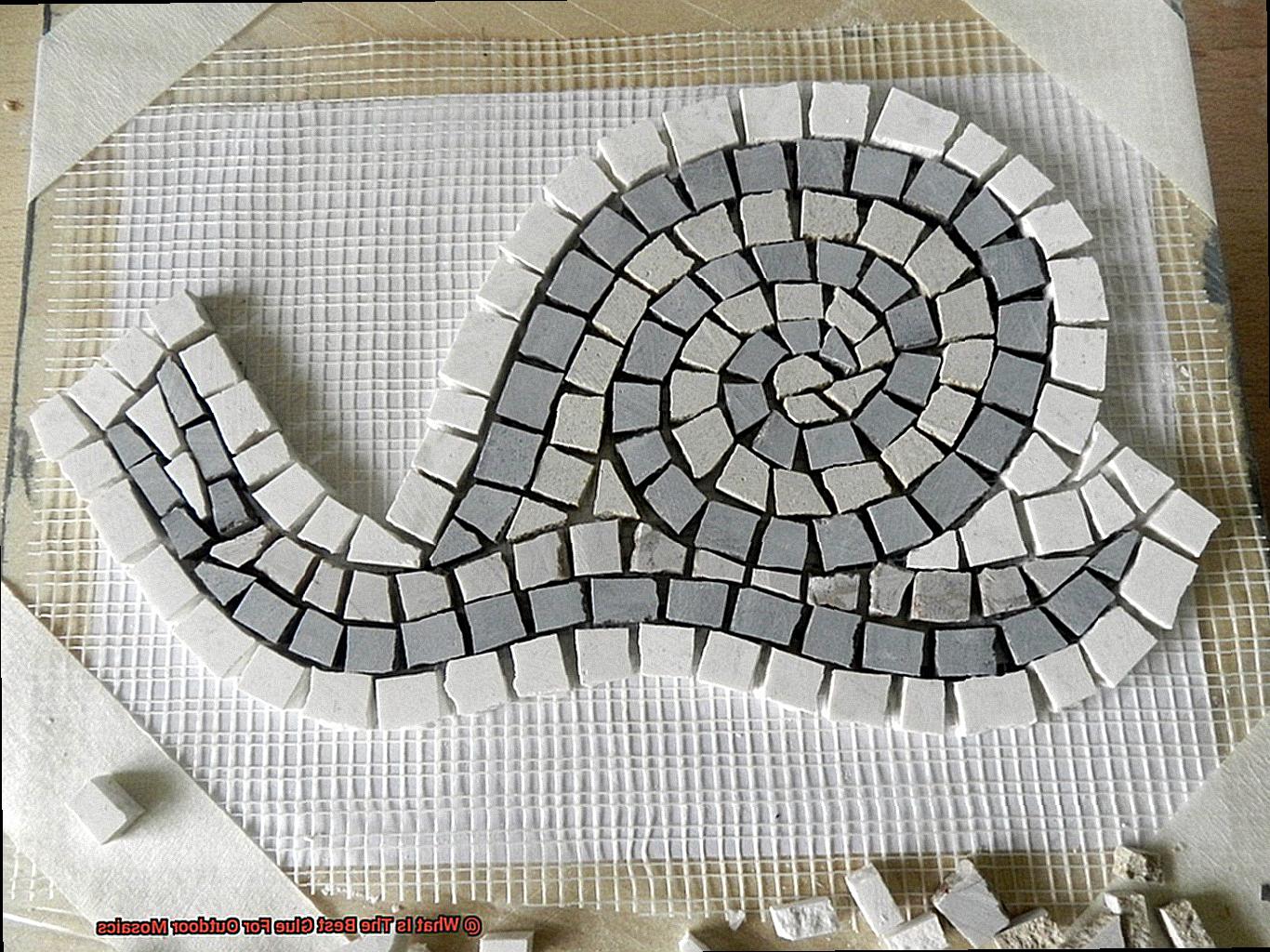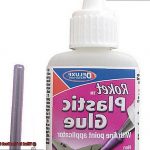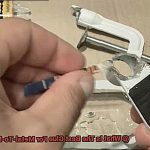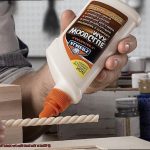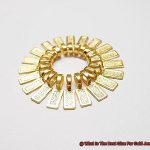Are you looking to spruce up your outdoor space with a touch of artistry? Look no further than outdoor mosaics. These timeless pieces can add charm and beauty to any garden, patio, or pool area. But before you start creating your masterpiece, it’s crucial to choose the right adhesive that can withstand harsh outdoor environments. With so many options available, finding the best glue for outdoor mosaics can be a daunting task.
Don’t worry – we’ve got you covered. In this blog post, we’ll explore the different types of glue suitable for outdoor mosaics. We’ll examine their durability, application methods, advantages and disadvantages and other essential factors to ensure your mosaic stands the test of time.
Whether you’re a DIY enthusiast or professional artist, choosing the right adhesive is key to achieving breathtaking results that create a lasting impression in your outdoor space. So let’s dive in and discover what type of glue will work best for your outdoor mosaic project.
What is an Outdoor Mosaic?
Contents
Outdoor mosaics are made up of small pieces of colored glass, stone or ceramic tile set into a bed of adhesive. These tiny pieces are arranged in a pattern or design to create a unique and visually appealing surface. Outdoor mosaics can be found on walls, floors, and other outdoor surfaces and can withstand the elements due to their durable construction.
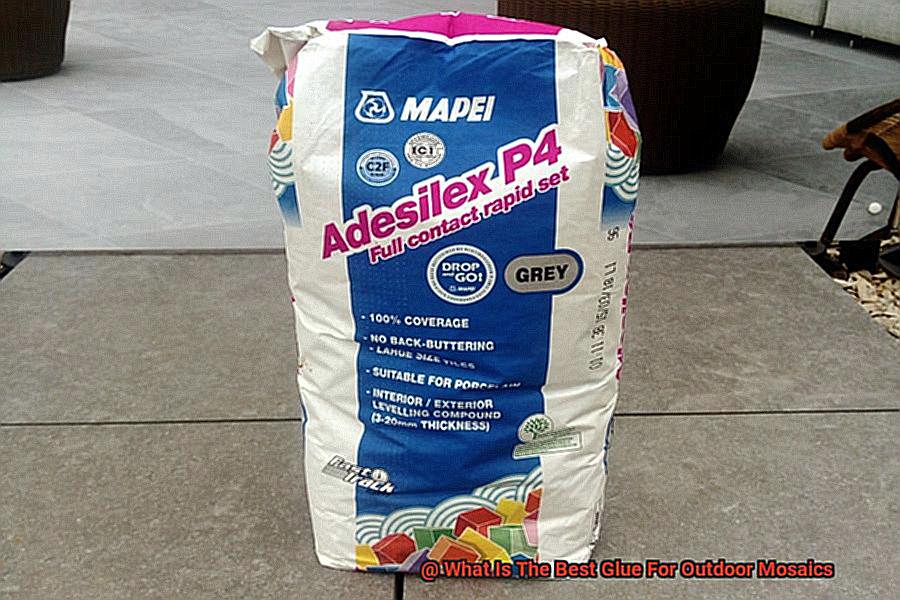
Mosaics have been used for thousands of years as a form of art and decoration, with ancient Greeks and Romans being known for their intricate mosaic designs. Today, mosaics come in many different styles and designs, from traditional geometric patterns to modern abstract designs. One of the benefits of creating an outdoor mosaic is that it can add color and interest to an otherwise plain surface. It can also be used to cover up imperfections or damage to an existing surface.
However, creating an outdoor mosaic can be challenging if you don’t use materials that are weather-resistant and able to withstand exposure to the elements. This is where choosing the right adhesive comes into play. There are several types of glue that can be used for outdoor mosaics, including silicone adhesive, two-part epoxy, and thinset mortar.
Silicone adhesive is a popular choice due to its flexibility and ability to resist water. Two-part epoxy provides excellent bonding strength and durability, while thinset mortar is suitable for outdoor mosaics as it provides excellent bonding strength and can withstand exposure to moisture. When selecting a glue for your outdoor mosaic project, it’s crucial to consider the specific needs of your project. Factors such as the type of surface you will be working with, the size and weight of the tiles, and the expected weather conditions should all be taken into account.
Types of Glue for Outdoor Mosaics
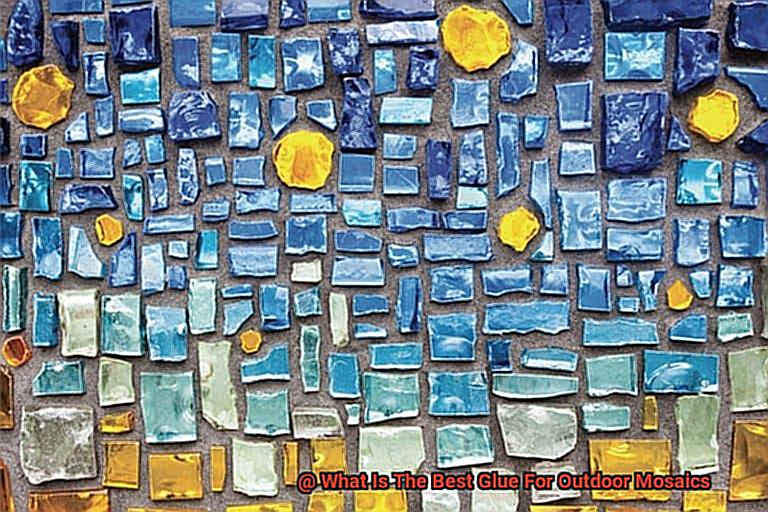
Creating an outdoor mosaic is a fun and creative project, but choosing the right type of glue can be the difference between a long-lasting piece of art and one that falls apart quickly. Here are five types of glue to consider for your outdoor mosaic:
Thin-Set Mortar
This cement-based adhesive is perfect for outdoor mosaics because it can handle harsh weather conditions. It’s ideal for bonding tiles and stones to surfaces like concrete, wood, and metal. Its durability makes it a popular choice among mosaic artists.
Epoxy Adhesive
If you need a strong and durable bond, epoxy adhesive is the way to go. It can handle extreme temperatures and moisture, which makes it perfect for outdoor mosaics. Epoxy adhesives are versatile and can bond a variety of materials.
Weldbond
Weldbond is another popular choice among mosaic artists because of its strength and long-lasting bond. It’s water-resistant and can tolerate extreme temperatures, which makes it suitable for outdoor projects. Weldbond is also non-toxic, making it safe to use.
Silicone Adhesive
For areas that may experience movement or expansion due to temperature changes, silicone adhesive is a flexible and waterproof option. It’s also UV-resistant, meaning it won’t yellow or break down in sunlight.
Polyurethane Adhesive
This type of adhesive is known for its strength and flexibility. It can handle extreme temperatures and is water-resistant, making it ideal for use in outdoor mosaics. Polyurethane adhesives are also resistant to chemicals and impact.
Silicone Adhesive
Look no further than silicone adhesive. This versatile and durable glue is ideal for projects that require strong adhesion and can withstand harsh weather conditions.
One of the biggest advantages of silicone adhesive is its flexibility. Unlike other adhesives, it can handle expansion and contraction caused by temperature changes. This feature ensures that your mosaic tiles will remain securely in place without cracking or breaking over time. Plus, its waterproof properties make it perfect for outdoor installations that are exposed to rain, snow, and other moisture.
However, there are some things to keep in mind when using silicone adhesive. It requires a longer drying time than other adhesives, so be patient and allow sufficient time for it to dry before grouting your tiles. Additionally, it’s important to note that silicone adhesive is not suitable for porous surfaces as it won’t bond effectively.
In summary, silicone adhesive is an excellent choice for your outdoor mosaic projects. Its flexibility and waterproof properties ensure a strong and long-lasting bond. Just remember to consider its drying time and surface requirements before getting started.
But wait, there’s more. Here are some additional benefits of using silicone adhesive:
- It’s resistant to UV radiation, which means it won’t break down or lose its bond over time due to sun exposure.
- It’s non-toxic and safe for use around children and pets.
- It can be applied in a variety of temperatures, making it a great option for all climates.
- It can be used on a variety of materials, including glass, metal, and plastic.
Two-Part Epoxy
Look no further than two-part epoxy. This popular adhesive option is known for its exceptional strength and durability, making it a go-to choice for mosaic artists.
One of the key benefits of two-part epoxy is its resistance to water, heat, and chemicals, making it ideal for outdoor mosaics. However, not all two-part epoxies are created equal – when selecting an adhesive, be sure to look for a UV resistant option to prevent yellowing or breaking down in sunlight. Additionally, ensure that the epoxy is appropriate for the materials you are working with – some options are specifically designed for use with porous materials like tile or stone.
Now, let’s get into the nitty-gritty of applying two-part epoxy to your mosaic. The process is simple – mix equal parts of the resin and hardener according to the manufacturer’s instructions, then apply it to the back of each mosaic piece using a small brush or toothpick. Press the piece into place on your substrate, working quickly as the epoxy begins to harden within minutes.
It’s important to note that while two-part epoxy is a strong and durable adhesive option, it may not be suitable for all materials. Plastic and rubber, for example, may not bond well with this type of adhesive. As with any adhesive, it’s always best to test a small sample before using it on your entire project.
Thinset Mortar
Look no further than thinset mortar. As an expert in this field, I can guarantee that thinset mortar is the ultimate choice for a durable and long-lasting installation.
One of the most significant benefits of using thinset mortar for outdoor mosaics is its remarkable ability to withstand the elements. It is resistant to water, frost, and heat, making it the perfect option for outdoor installations. Unlike other adhesives, thinset mortar has a decreased risk of shrinking or cracking, ensuring that your mosaic stays intact and beautiful over time.
Another great benefit of utilizing thinset mortar is its cement-based formula, which makes it strong and durable. You can rest assured that your mosaic will hold up not only through inclement weather but also over time.
Of course, proper application is crucial when using thinset mortar for outdoor mosaics. Thoroughly cleaning the surface before applying the adhesive is essential to ensure proper adhesion of the tiles. It’s also important to follow the manufacturer’s instructions when mixing the thinset mortar to achieve the correct consistency.
Factors to Consider When Selecting Glue for Outdoor Mosaics
Creating an outdoor mosaic is a fantastic way to add color and beauty to your garden or patio. However, choosing the right glue is crucial to ensure that your masterpiece can withstand the harsh elements of nature. Here are some critical factors to consider when selecting glue for your outdoor mosaics:
Weather resistance is the most important factor to keep in mind. Your outdoor mosaic will be exposed to varying weather conditions, such as rain, snow, heat, and humidity. Therefore, you need a glue that can withstand these conditions without deteriorating or losing its adhesive properties.
UV resistance is another crucial factor to consider. The sun’s rays can cause some adhesives to break down and lose their strength over time. Therefore, you need a glue that is specifically designed to resist UV rays. This will ensure that your mosaic doesn’t lose its bond or fade in color.
Waterproofness is a must-have feature for any glue used in outdoor mosaics. You need a glue that can prevent water from seeping under the tiles and causing them to come loose. This will help your mosaic stay in place no matter how much it rains or how humid it gets.
Bonding strength is another essential factor. You want a glue that has a strong bonding strength capable of holding the tiles securely in place, even in high-traffic areas. This will prevent your mosaic from becoming damaged or falling apart over time.
Drying time is also important, especially if you’re working on a large project. You don’t want to have to wait too long for the glue to dry before moving on to the next section. Look for a glue that dries quickly and efficiently.
Ease of use is another factor you should keep in mind when selecting glue for your outdoor mosaic project. You don’t want a messy or difficult-to-work-with glue that makes installation more challenging than it needs to be. Look for a glue that is easy to apply and doesn’t require any special tools or equipment.
Wood Surfaces and Warping
It’s important to choose the right surface and glue to ensure your masterpiece can withstand the elements and stay in place for years to come.
Firstly, let’s talk about the wood surface. Wood is known to warp and expand due to changes in temperature and humidity, but using a stable and durable wood surface can prevent this issue. Cedar, redwood, and pressure-treated pine are all excellent options because they naturally resist decay and can withstand outdoor conditions. To further protect against moisture damage, it’s also recommended to seal the wood surface with a waterproofing sealer before applying the mosaic tiles.
Now, let’s move onto the glue. The adhesive you choose is just as important as the wood surface. A high-quality waterproof adhesive is essential for outdoor mosaics on wood surfaces. Epoxy adhesives are popular because they provide a strong bond and can withstand exposure to water and sunlight. However, they can be tricky to work with and require precise mixing ratios.
If you’re looking for an alternative option, consider using a modified silicone adhesive. It’s easy to use and provides a flexible bond that can accommodate the natural expansion and contraction of wood surfaces. These types of adhesives are also resistant to water and UV rays, making them ideal for outdoor use.
Ultimately, the best glue for your outdoor mosaic on a wood surface will depend on your specific project requirements and personal preference. It’s important to do thorough research and consult with professionals before making a final decision.
VKumnvCXi7A” >
Conclusion
In conclusion, an outdoor mosaic can be a beautiful addition to any garden or patio. However, choosing the right glue is crucial for ensuring that your masterpiece can withstand the harsh elements of nature. To select the best glue for your project, consider factors such as weather resistance, UV resistance, waterproofness, bonding strength, drying time, ease of use and the type of surface you will be working with.
There are several types of glue that work well for outdoor mosaics such as thin-set mortar, epoxy adhesive, Weldbond, silicone adhesive and polyurethane adhesive. Each adhesive has its own unique benefits and drawbacks depending on your specific needs.
Silicone adhesive is a popular choice due to its flexibility and water-resistant properties. Meanwhile, two-part epoxy provides excellent bonding strength and durability. Additionally, thinset mortar is suitable for outdoor mosaics because it can withstand exposure to moisture.
When selecting a glue for your outdoor mosaic project, it’s essential to consider the specific needs of your project. Factors such as tile size and weight, surface type and expected weather conditions should all be taken into account.

